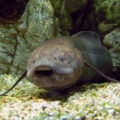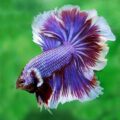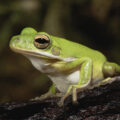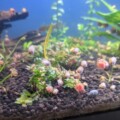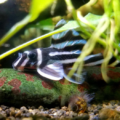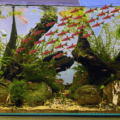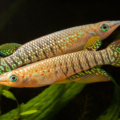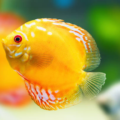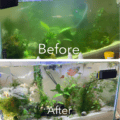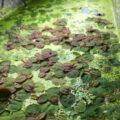A comprehensive guide for first-time frog owners looking for a beginner-friendly species to grace their terrarium including handling, feeding, tank setup and plenty more tips.
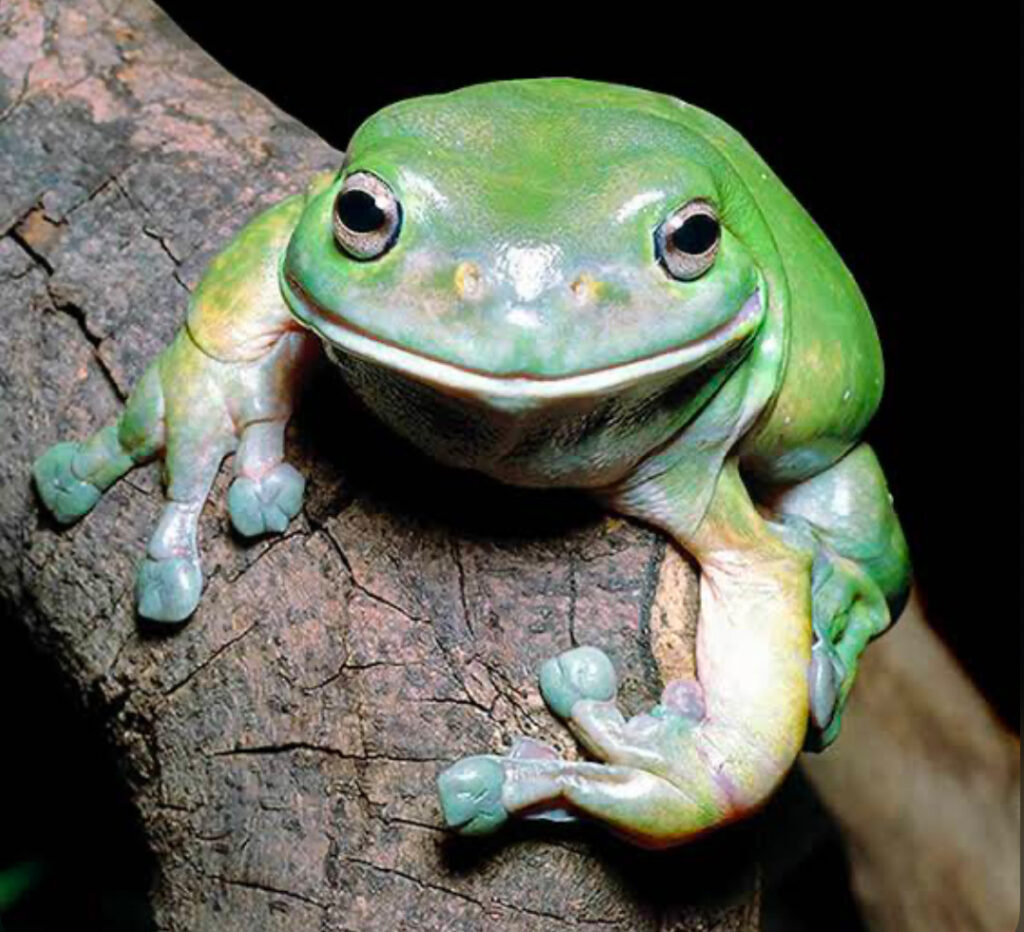
Australian Green Tree Frog: Calm, Long-Lived, Beginner-Friendly Pet
The Australian Green Tree Frog, also called White’s Tree Frog, Green Tree Frog, and Dumpy Tree Frog, is an ideal beginner amphibian pet. It’s large, docile, and has a lifespan of 15+ years, plenty of time to enjoy this exotic pet.
To keep a White’s tree frog as a pet, there are certain requirements like providing a comfortable habitat, good food, and compatible companions in community enclosures.
This Litoria caerulea care guide contains all the details you need and more on keeping this species. So, let’s start this Australian green tree frog overview from the beginning and dig into your pet’s natural environment.
Author’s Note: Checkout our post on The 7 Beginner-Friendly Amphibians for a complete guide to choosing the right amphibious pet for first time keepers.
Natural Habitat & Adaptations

Litoria caerulea’s natural range covers Australia and New Guinea, but it migrated to the United States through human introduction.
You’ll find the Australian green tree frog habitat in rainforests, wetlands, and even near homes because they adapt to both wild & urban settings. As tropical forest dwellers, this species thrives in setups with plenty of vegetation.
Before going into details on arboreal amphibian care practices, let’s discuss identification through distinctive features.
Recognizing Features & Size

Identifying the Australian green tree frog species is easy because of its distinctive appearance. It’s a stocky, average sized amphibian with a body length of 3-4.5”.
A closer look at this tree frog’s appearance highlights its difference from other similar-looking amphibians, starting with its bright green skin and white underbelly.
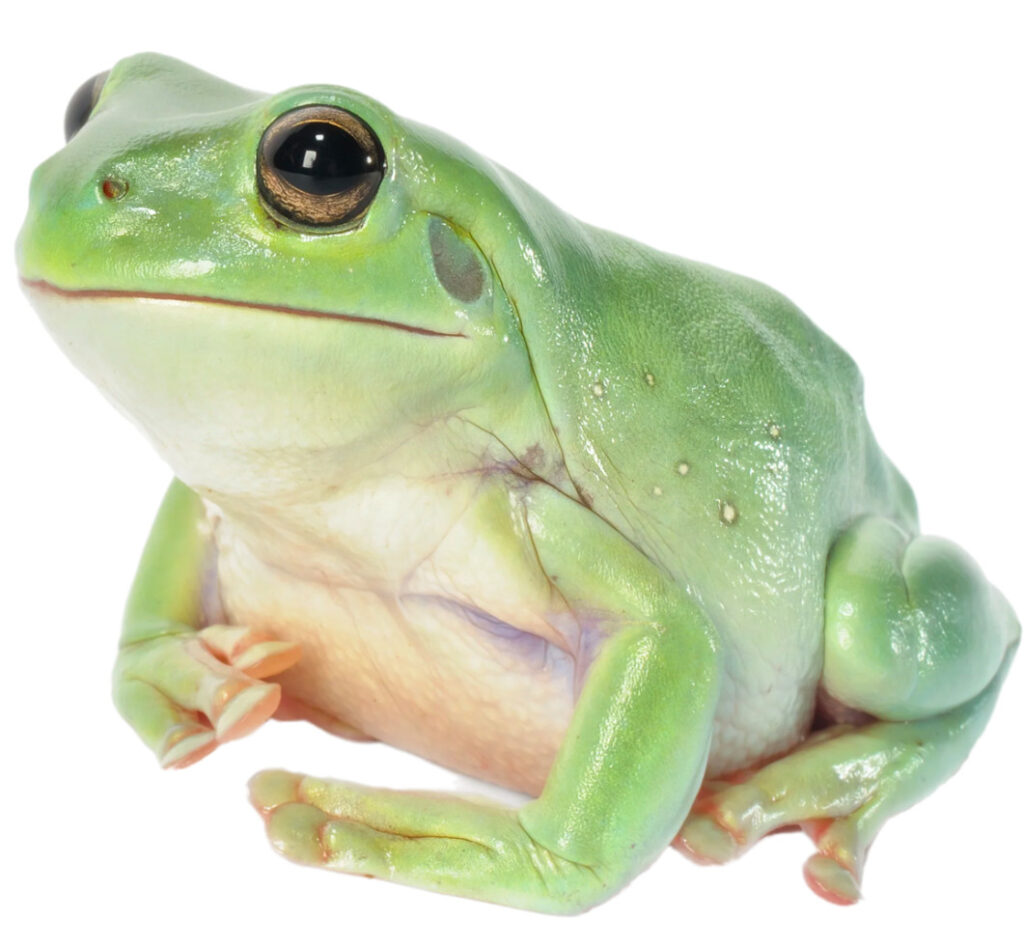
These colors change from a bright green shade to brown depending on the temperature and environmental conditions.
You’d also notice its distinctive eye markings, from its large golden iris to horizontal black slits, and can identify sex by observing the Litoria caerulea‘s size.
| Male | Smaller | 3” |
| Female | Larger | 4.5” |
Both male and female Green Tree Frogs, however, have the same rounded belly with short and fat limbs. These limbs have adhesive discs for gripping trees when they climb in the tropics.
Now, let’s recreate a tropical environment to make your new arboreal pets comfortable.
Enclosure Setup & Décor

If you want to keep this species as a pet, these are the essentials for an ideal Australian green tree frog tank setup, up next.
Enclosure
We’ll start by choosing enclosure size, material, and shape. As a rule of thumb, a vertical tank for frogs with climbing habits is better than a horizontal design. Ensure it holds at least 20 gallons of water per single Australian Green tree frog.
Also, choose a glass material that can withstand heat while allowing you to display your pets in their terrarium.
Substrate

Found On Amazon
When building your arboreal amphibian terrarium, consider its peculiarities and natural habitat. Layer the floor with coarse substrate like coconut fiber or orchid bark.
Avoid fine sand, as your pets may mistakenly ingest it and develop a health issue.
Décor
Driftwood and plants are the core of every frog terrarium. It can be live or artificial, but ensure they have frog-safe climbing branches to avoid breakage, injuries, and other tree-related accidents.
Ventilation
Because your frog needs access to air for proper breathing and oxygen distribution, cover the tank with a mesh lid.
Security and Safety
Use a secure lid to keep your pet from climbing out of the tank, and keep a bowl of shallow water close by to encourage soaking. Now let’s focus on humidity control and temperature parameters.
Temperature, Humidity & Lighting
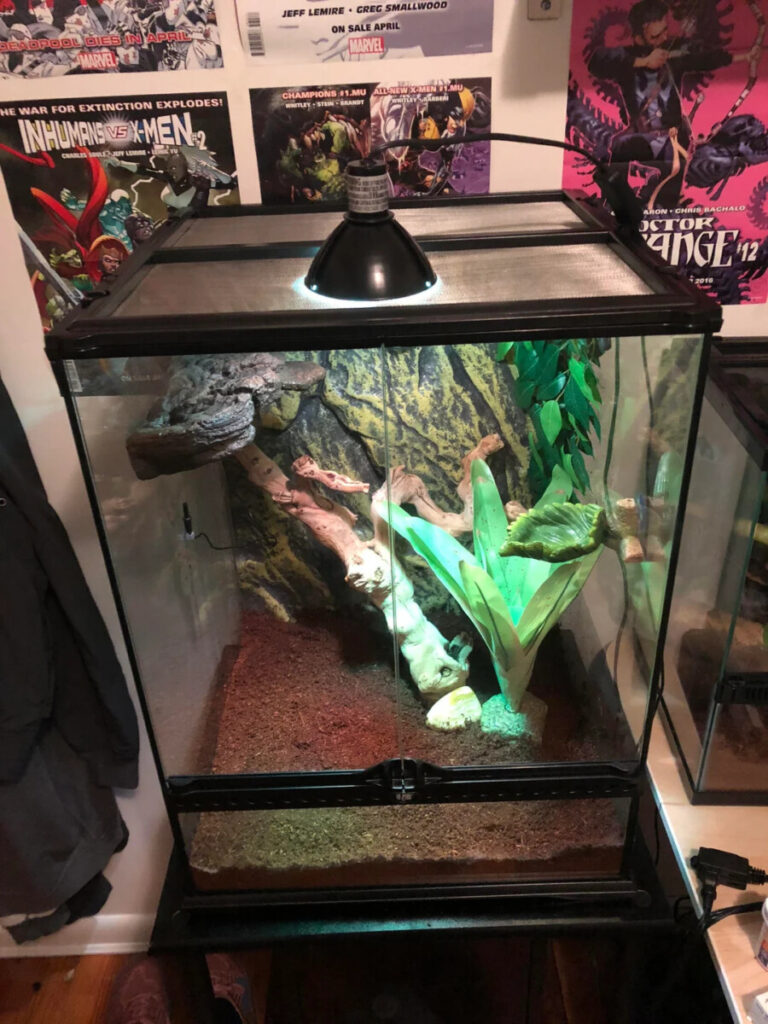
You can manipulate temperature, humidity & lighting to make seasonal climate adjustments in your terrarium.
Temperature
Add a heating lamp to regulate the temperature in the tank.
Because this pet lives in a terrarium, setting the right Australian green tree frog temperature would make or break the setup. Start from a low heat level and regulate it as the day changes into night.
| Day Temp | 75–85°F |
| Night Temp | 65–75°F |
Humidity
Litoria caerulea humidity levels throughout the day are also essential to mimicking a tropical climate. Use a misting system to set a 50-70% humidity level periodically.
Lighting
Although using UVB light is optional, you can’t avoid a frog lighting setup. You need it to give your tank a day/night cycle and introduce normalcy to your pet’s schedule.
A low UVB light gives your Australian Green Tree frog vitamin D3 for calcium absorption and strong bone development.
Diet & Feeding
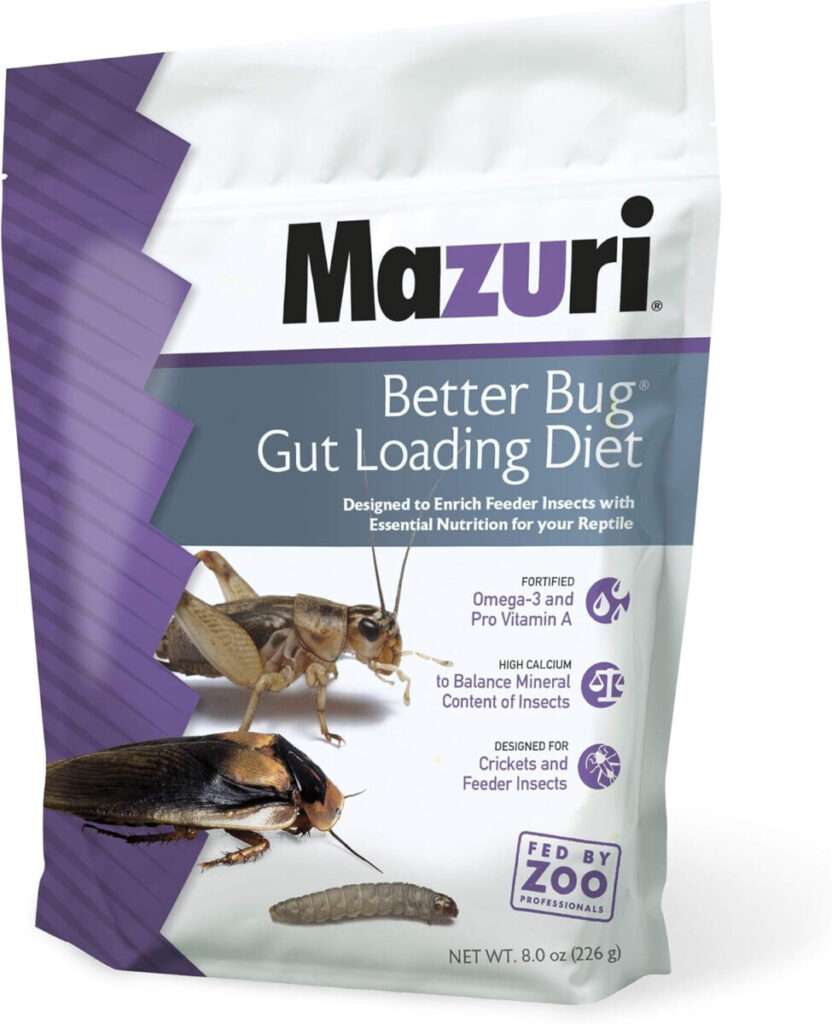
Found On Amazon
Environmental sources are one way to provide your pets with nutrients, while a well-curated Australian green tree frog diet completes the job.
If you’re wondering about what to feed Litoria caerulea that’ll contain all these nutrients, the answer is gut-loaded insects.
This frog species is strictly carnivorous and would eat crickets, roaches, worms, moths, geckos, small mice, dust prey, and gut-load. However, avoid feeding your Australian Green tree frog with wild insects.
Look at this amphibian feeding schedule for directions on how many times to feed them at all life stages:
| Juveniles | 2 – 3 times daily |
| Adults | 2 – 3 times weekly |
| Supplements | Feed 1 – 2 times bi-weekly |
Behavior & Handling
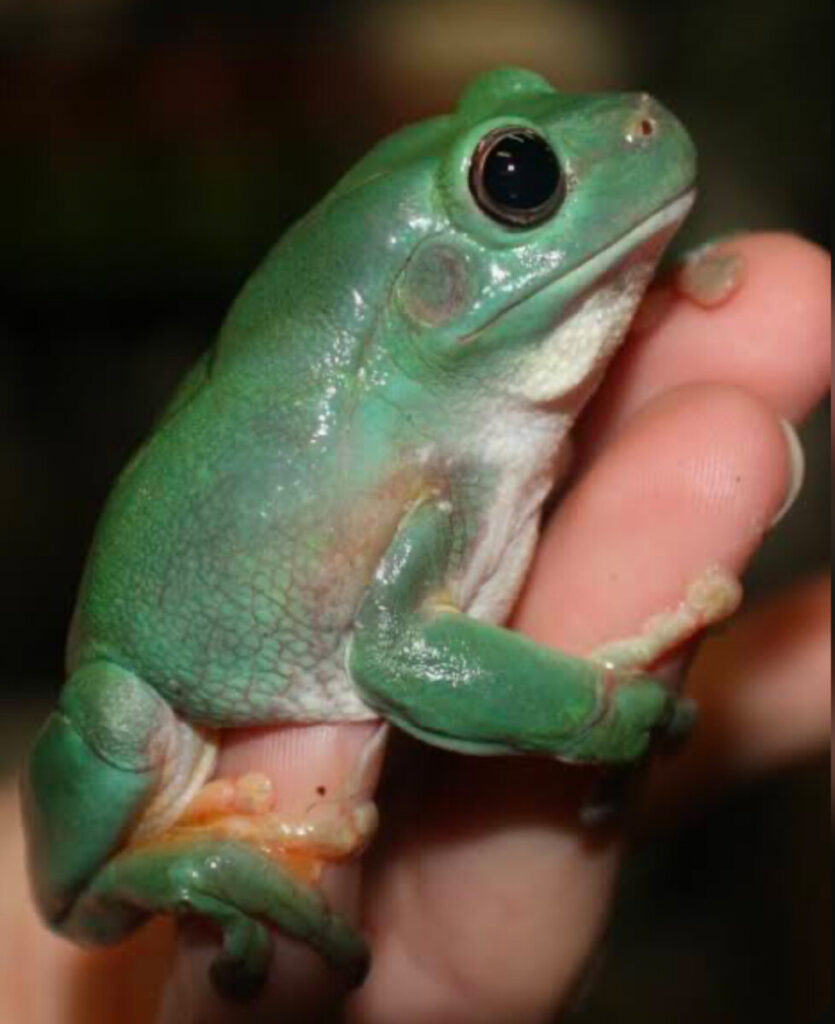
Understanding your pet’s behavior and tolerance guides you on the best way to handle its care.
Behavior
Australian green tree frog behavior is nocturnal, peaceful, and sometimes social in groups. This pet makes a distinct mating call when it wants to breed.
Handling
Typically, handling pet frogs depends on each species’ temperament. The Litoria caerulea temperament is calm, but you still need to minimize handling to reduce the risk of health issues like skin damage and stress.
For stress-free frog care, always wash your hands before and after contact. Also, limit handling to necessary moments and not whenever you feel like fawning over your pet.
Health Issues & Prevention
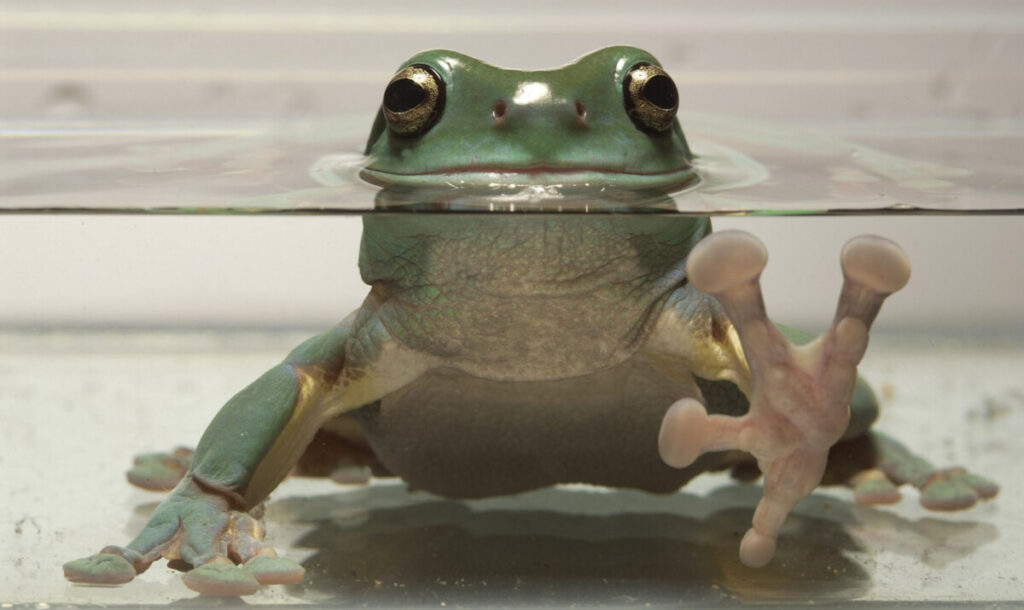
Proper amphibian health maintenance reduces the risk of common diseases like fungus, parasitic, and bacterial infection.
With the Australian green tree frog health tips in this guide, you’ll also save your pet from nutritional deficiency and environmental illnesses.
Besides those common frog diseases, this species is specifically susceptible to chytrid fungus and bacterial infections because of its sensitive skin. If your pet ever has skin issues, isolate it from other tank mates first. Then, administer antifungal medication for about 10 days until the fungal infection clears.
The most common treatment is a bath in diluted antifungal solution but there are alternatives like salt baths and heat treatments.
Scroll up for Litoria caerulea care tips, especially recommendations on cleaning and stability to keep your pet healthy.
Lifespan & Commitment
Did you know you can maximize an Australian green tree frog’s lifespan for up to 10–20 years? And the best part is that this long-term amphibian care is low maintenance compared to other frogs.
Think of the care consistency over time from accessible food sources to a standard vertical tank setup, and its calm behavior. Now you see why it’s a beginner frog choice.
As long as you’re committed, it would be a walk in the park.
Conclusion: Is the Australian Green Tree Frog Right for You?
As we close this Litoria caerulea advice overview, let’s review why it’s an ideal pet for new keepers.
Unlike other amphibians, keeping Australian green tree frogs as a pet isn’t stressful. It’s a docile and hardy species that can survive a few care mistakes but you can avoid them with the simple care practices outlined above.
Author’s Note: As a bonus, since you have almost made it to the end of this guide, be sure to checkout our Comprehensive Guide to The African Dwarf Frog!
In summary,
- Feed your pets on time and appropriately
- Design an optimal tank setup and
- Minimize handling.
Even if it’s your first time, this pet frog care summary has everything you need to keep the Australian Green Tree species successfully.

